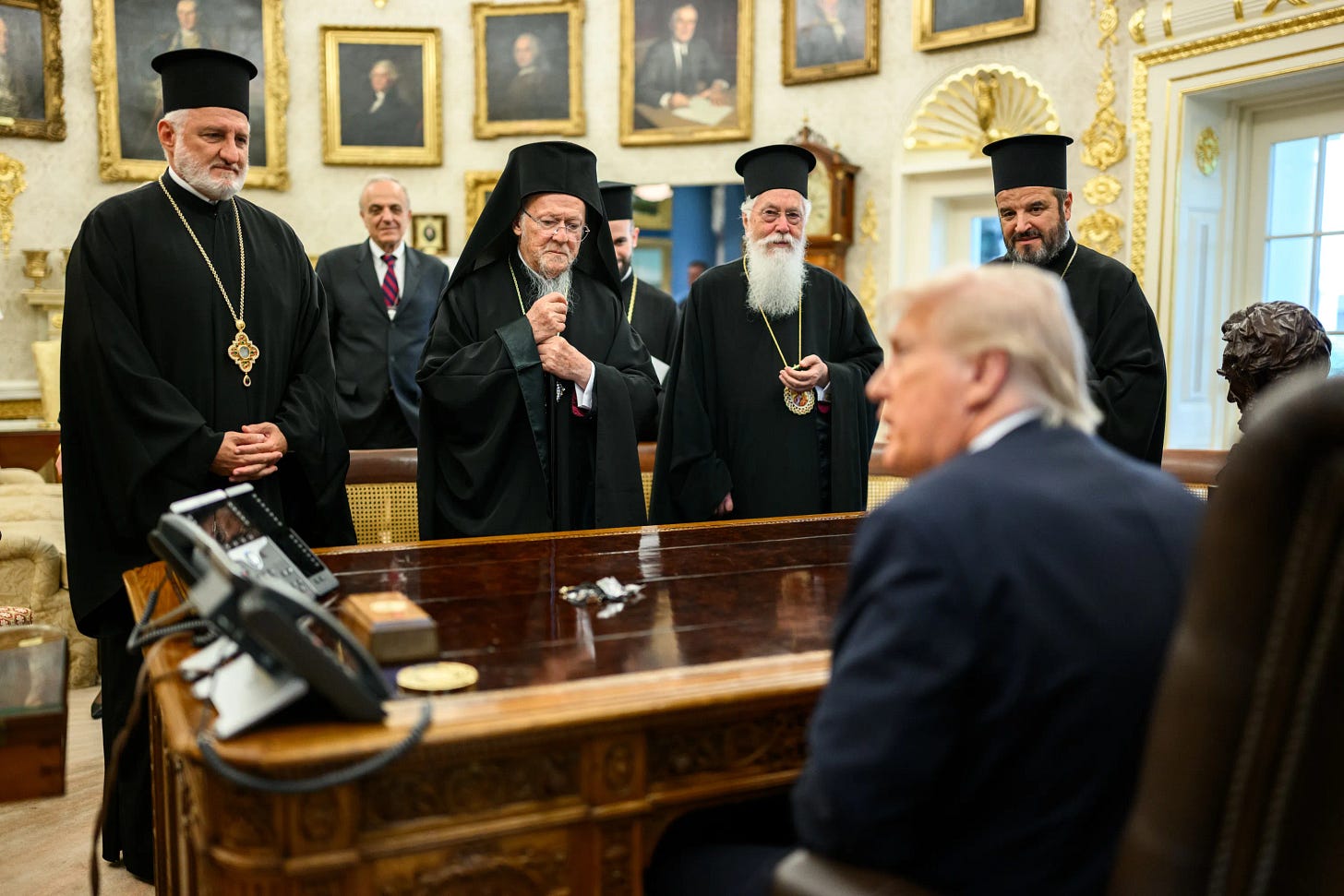Trump responds favourably to Bartholomew in Washington
New Sinai Archbishop elected ● Progress for Halki Seminary ● Legal fight over UOC-MP ban ● GRU–Serbia links and hybrid attacks on religious sites in Europe

Welcome to Divine Dispatch, your expertly curated weekly briefing on the pulse of church geopolitics.
The situation around the Sinai monastery appears to be settling after the election of a new Archbishop and abbot, following significant involvement from A…



